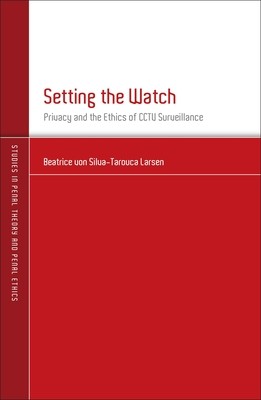
- We will send in 10–14 business days.
- Author: Beatrice von Silva-Tarouca Larsen
- Publisher: Hart Publishing
- Year: 2011
- Pages: 226
- ISBN-10: 1849460841
- ISBN-13: 9781849460842
- Format: 16.3 x 23.6 x 1.5 cm, hardcover
- Language: English
- SAVE -10% with code: EXTRA
Reviews
Description
Many liberals consider CCTV surveillance in public places - particularly when it is as extensive as it is in England - to be an infringement of important privacy-based rights. An influential report by the House of Lords in 2009 also took this view. However there has been little public, or academic, discussion of the underlying principles and ethical issues. What rights of privacy or anonymity do people have when abroad in public space? What is the rationale for these rights? In what respect does CCTV surveillance compromise them? To what extent does the state's interest in crime prevention warrant encroachment upon such privacy and anonymity rights? This book offers the first extended, systematic treatment of these issues. In it, the author develops a theory concerning the rationale for the entitlement to privacy and anonymity in public space, based on notions of liberty and dignity. She examines how CCTV surveillance may compromise these rights, drawing on everyday conventions of civil inattention among people in the public domain. She also considers whether and to what extent crime-control concerns could justify overriding these entitlements. The author's conclusion is that CCTV surveillance should be appropriate only in certain restrictively-defined situations. The book ends with a proposal for a scheme of CCTV surveillance that reflects this conclusion.
EXTRA 10 % discount with code: EXTRA
The promotion ends in 17d.19:31:56
The discount code is valid when purchasing from 10 €. Discounts do not stack.
- Author: Beatrice von Silva-Tarouca Larsen
- Publisher: Hart Publishing
- Year: 2011
- Pages: 226
- ISBN-10: 1849460841
- ISBN-13: 9781849460842
- Format: 16.3 x 23.6 x 1.5 cm, hardcover
- Language: English English
Many liberals consider CCTV surveillance in public places - particularly when it is as extensive as it is in England - to be an infringement of important privacy-based rights. An influential report by the House of Lords in 2009 also took this view. However there has been little public, or academic, discussion of the underlying principles and ethical issues. What rights of privacy or anonymity do people have when abroad in public space? What is the rationale for these rights? In what respect does CCTV surveillance compromise them? To what extent does the state's interest in crime prevention warrant encroachment upon such privacy and anonymity rights? This book offers the first extended, systematic treatment of these issues. In it, the author develops a theory concerning the rationale for the entitlement to privacy and anonymity in public space, based on notions of liberty and dignity. She examines how CCTV surveillance may compromise these rights, drawing on everyday conventions of civil inattention among people in the public domain. She also considers whether and to what extent crime-control concerns could justify overriding these entitlements. The author's conclusion is that CCTV surveillance should be appropriate only in certain restrictively-defined situations. The book ends with a proposal for a scheme of CCTV surveillance that reflects this conclusion.


Reviews